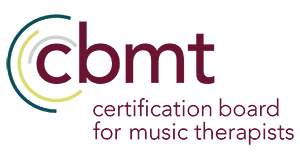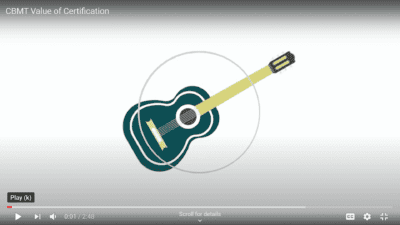For Convenience & Safety, Music Therapists Indicate Telepractice is Here to Stay
The effects of the pandemic accentuated the importance of managing stress, improving communication, and taking steps toward positive mental health – all issues that music therapy helps address. When the restrictions of COVID-19 made clear that music therapy clients needed an alternative to in-person office visits, many therapists joined the widespread shift to virtual care to provide services safely.
Now, as the health crisis shows signs of waning, many people have found they prefer to stick with the new normal in health services delivery. Telepractice has become a well-established option to meet the needs of clients who do not have easy access to music therapy services, who have issues with transportation, or who simply prefer the convenience and comfort of appointments in a home environment.
In a national survey of board-certified music therapists – designed to uncover their solutions for engaging clients and keeping the standard of care high throughout COVID-19 – the Certification Board for Music Therapists (CBMT) and the American Music Therapy Association (AMTA) found that adopting telepractice was key. The following five survey categories highlight how telepractice has helped reshape the delivery of music therapy and diversify service options, during the pandemic and beyond:
Collaboration
Despite the need for distancing and working remotely, music therapists reported increased collaboration with colleagues and administrators, often coordinating with them to determine the safest and most effective ways to provide services. Although music therapists did not commonly work virtually with clients before the pandemic began, the industry moved quickly to facilitate a shift to telepractice when in-person visits became limited.
One survey respondent commented: “When I reached out to the special education department for permission to provide teletherapy services, I was encouraged to hear that I had their full support to serve students in whatever capacity necessary.”
- Some clinicians providing clinical music therapy services before the pandemic (60-100%) have taken on more administrative and non-music therapy clinical work.
- Many clinicians (10-50%) are providing more clinical music therapy services.
- Many are doing more administrative and non-music therapy clinical services (60-100%) than prior to the pandemic.
- Clinical supervision (supervising students and professionals) has dropped since the start of the pandemic.
Connection
The increased use of telepractice allowed family members to become more involved and engaged as they saw firsthand what is involved in music therapy and how their loved one was responding. As a result, the entire family could benefit from the enhanced opportunities to connect among themselves, further develop their understanding of music therapy, and work together on goals.
Even families who initially declined to participate in telepractice reconsidered for the following reasons:
- The lockdown/social distancing lasted longer than they expected
- They sought more social interaction
- They felt they had acquired the necessary skills, equipment or technology to participate virtually
Some clients showed a higher comfort level and found they could be more open in the virtual setting. As one survey respondent said: “I saw students engage with me, their peers, and parents/caregivers in new ways that I had not seen in the classroom.”
Communication
Telepractice provided additional flexibility for clients to communicate with music therapists and receive access to services and education when and where it was most convenient. Some sessions involved one-on-one communication for immediate feedback, while others included pre-recorded material that was available at the client’s discretion.
Survey respondents indicated they provided services in the following ways during the pandemic:
- Pre-recorded material: 19%
- Live tele-sessions: 18%
- Live, in-person services in an open space: 25%
- Live, in-person services in enclosed spaces (with precautions): 37%
- Audio only: 4%
As one respondent commented: “Telepractice sessions have been extremely effective, and I really hope I can continue offering music therapy services in this fashion.”
Coping
Although they acknowledged the difficulties of offering clinical services during a pandemic, many music therapists appreciated the opportunities provided by telepractice to enhance their skills, work with more clients, and establish new relationships. Often, they felt more gratified personally and professionally.
According to one respondent: “I have grown tremendously in a lot of areas, not to mention flexibility. I am more confident in my skills of teletherapy, and I am able to reach people across the country … I have good relationships with many new colleagues.”
Music therapists also pointed out the resiliency of clients and families who made the transition to telepractice services, commenting on the new capabilities they saw in their clients as they worked together in a virtual space.
Creativity
The pandemic forced music therapists to think more innovatively about the safe delivery of clinical services. Almost two-thirds of respondents (61.9%) said telepractice helped them meet this need and adapt their treatment to make progress more attainable for their clients.
Many music therapists also cited the changes they made in their service delivery as a catalyst for added creativity in other areas of their lives, opening them up to new ways of thinking and seeing everything through a new lens. In the words of one survey participant, “Change forces me to see things differently, which has generated increased creativity as well. I play more for myself now. I wrote a song … I am so very grateful for my work and the ability to keep going during the pandemic!”






